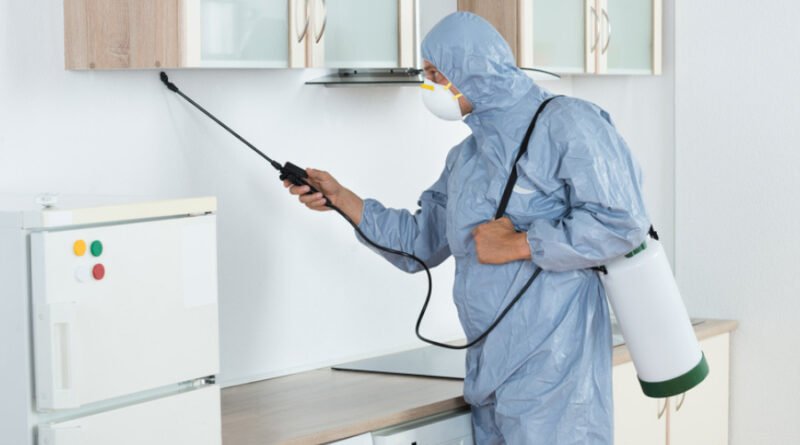The Comprehensive Guide to Pest Control

Regarding safeguarding your home from unwelcome invaders, a few topics are as critical as Pest Control and Termite Control. These essential services protect your property from structural damage and ensure a healthy living environment. This article delves into the significance of these services, advanced methodologies, and their transformative impact on modern households.
Table of Contents
Understanding Pest Control
Pest Control is a broad term encompassing various strategies and methods to manage and eliminate pests. Pests can range from insects like ants, roaches, and mosquitoes to rodents and other vermin. The primary objective is to mitigate these creatures’ adverse effects on human health, agriculture, and the overall ecosystem.
The Importance of Pest Control
- Health Protection: Many pests are vectors of diseases. For instance, mosquitoes can transmit malaria and dengue fever, while rodents can carry hantavirus and leptospirosis. Effective Pest Control measures prevent these health risks.
- Property Preservation: Insects like termites can cause significant structural damage. Implementing Termite Control measures is crucial to avoid costly repairs and maintain the integrity of your property.
- Food Safety: Pests can contaminate food supplies, leading to foodborne illnesses. Regular Pest Control ensures that your food storage areas remain clean and pest-free.
Advanced Pest Control Techniques
Modern Pest Control methods have evolved significantly from traditional chemical sprays to more sophisticated, eco-friendly solutions. Some of these include:
- Integrated Pest Management (IPM): This holistic approach combines biological, physical, and chemical methods. IPM aims to minimize the use of harmful chemicals, promoting sustainable and environmentally friendly practices.
- Biological Control: Utilizing natural predators and parasites to control pest populations. For example, ladybugs are introduced to control aphid populations.
- Electronic Pest Control Devices: Ultrasonic devices that emit high-frequency sound waves to repel pests without harming humans or pets.
- Eco-friendly Pesticides: Derived from natural sources, these pesticides are less harmful to the environment and non-target species.
Delving into Termite Control
Termite Control is a specialized branch of Pest Control focusing on eliminating and preventing termite infestations. Termites are notorious for their ability to silently destroy wooden structures, making early detection and intervention crucial.
Why Termite Control is Vital
- Prevent Structural Damage: Termites feed on cellulose, the primary component of wood. Without effective Termite Control measures, they can compromise the structural integrity of buildings.
- Financial Savings: Early detection and treatment of termites can save homeowners thousands of dollars in repair costs.
- Property Value Maintenance: Regularly ensures that your property remains in good condition, preserving its market value.
Cutting-edge Termite Control Strategies
To combat termites effectively, several innovative methods have been developed:
- Termite Baits: These are strategically placed around the property and contain slow-acting toxins that termites carry back to their colony, effectively eliminating them.
- Soil Treatment: Applying termiticides to the soil around the foundation creates a barrier that prevents termites from entering the building.
- Wood Treatment: Treating wood with borates or other chemicals that deter termites from feeding on it.
- Infrared Detection: Using infrared cameras to detect termite activity within walls and other hidden areas, allowing for early intervention.
The Role of Professional Services
While DIY methods can be somewhat effective, professional Pest Control and Termite Control services offer expertise, advanced tools, and comprehensive treatment plans. Here’s why hiring professionals is beneficial:
- Expert Knowledge: Professionals have the training and experience to identify and treat various pest and termite infestations effectively.
- Customized Solutions: They provide tailored solutions based on the specific needs and conditions of your property.
- Advanced Equipment: Access to state-of-the-art equipment and products that are not available to the general public.
- Long-term Prevention: Professional services often include ongoing monitoring and maintenance to ensure long-term protection against pests and termites.
Eco-friendly Pest Control and Termite Control
In recent years, there has been a growing emphasis on eco-friendly Pest Control and Termite Control practices. These methods prioritize the health of the environment and non-target species, ensuring that pest management does not come at the cost of ecological balance.
- Botanical Insecticides: Derived from plants, these insecticides are less harmful and biodegradable.
- Physical Barriers: Installing barriers to prevent termites from accessing the building foundation.
- Habitat Modification: Altering the environment to make it less conducive to pest infestations, such as reducing standing water to prevent mosquito breeding.
Conclusion
In conclusion, effective Pest Control and Termite Control are essential for maintaining a safe, healthy, and structurally sound home. With the advent of advanced technologies and eco-friendly practices, homeowners can now protect their properties more sustainably and effectively. By understanding the importance and methodologies of these services, you can make informed decisions to safeguard your home against the pervasive threat of pests and termites. Whether opting for professional services or employing DIY methods, prioritizing Pest Control and Termite Control is an investment in your property’s longevity and your family’s well-being.


